AgentOps helps developers see inside their AI agents by logging every prompt, action, and cost. This review explains how it works, its features, setup, and why it’s becoming the go-to debugging tool for AI developers.
Search Atlas Review (2025) – Features, Pricing, Pros and Cons
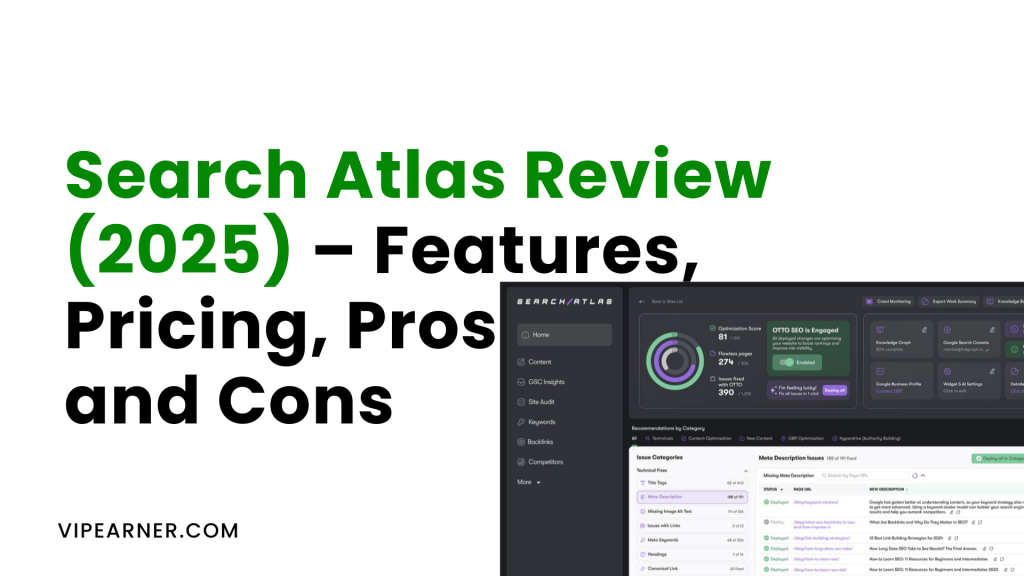
Table of Contents
Search Atlas is an all-in-one SEO platform that aims to replace a stack of separate SEO tools with a single dashboard. It combines capabilities for keyword research, content optimization, site auditing, competitor analysis, and backlink tracking under one roof. What really sets Search Atlas apart is its use of AI (artificial intelligence) – notably an AI assistant called OTTO – to automate up to 90% of SEO tasks and help users see results faster.
Designed initially with agencies in mind, Search Atlas includes features like multi-user access and white-label reporting for client work. However, it's equally approachable for beginners, solo marketers, and small business owners who want to improve their Google rankings without juggling multiple tools.
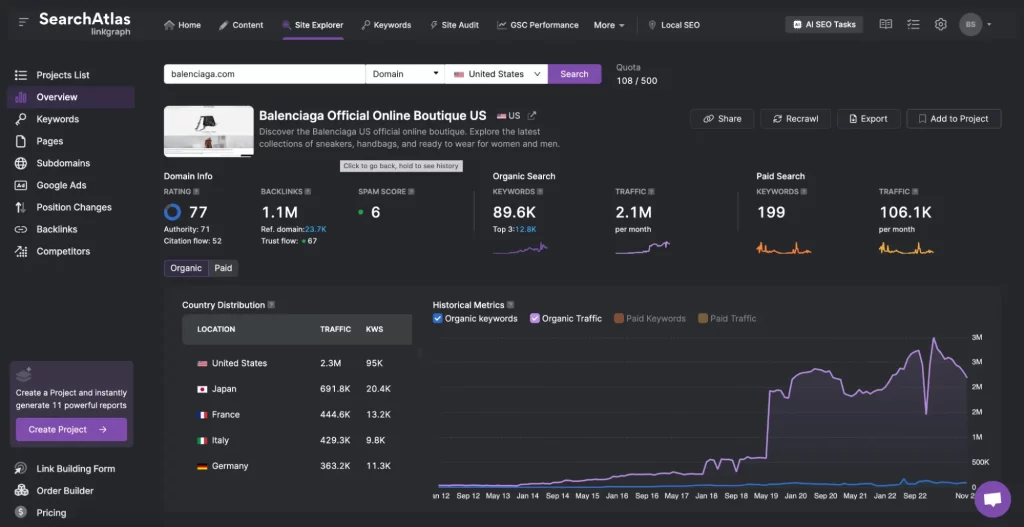
If you’re looking for a platform that can guide your SEO strategy, generate content, track performance, and even suggest weekly tasks for you to tackle, Search Atlas is built to do exactly that. In this review, we’ll explore Search Atlas’s key features, pros and cons, pricing, how it compares to competitors (like Ahrefs, Semrush, and Surfer SEO), and who will benefit most from using it.
(Free Trial: Search Atlas offers a 7-day free trial with full access, so you can test its features firsthand before subscribing.)*
Key Features of Search Atlas
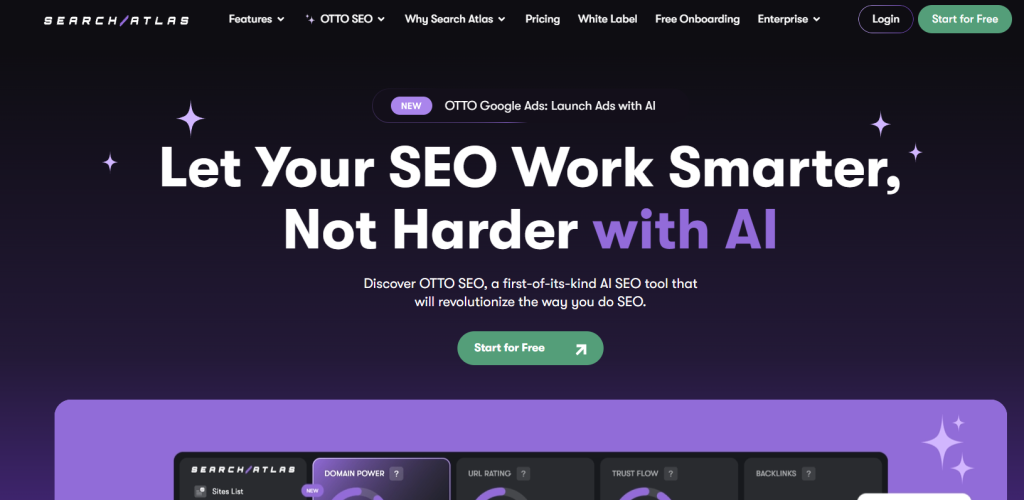
Search Atlas markets itself as a comprehensive SEO “suite,” and it delivers a wide range of tools. Below we break down its core features into logical groups – from keyword and content tools to technical audits, link building, local SEO, and automation. The goal is to highlight what each feature does and how it can help your SEO workflow.
Screenshot of the Search Atlas content editor (SEO Content Assistant) interface, showing an article draft with an SEO score and optimization suggestions. The tool provides recommended keywords, content length, links, and AI writing options to improve the draft.
AI-Powered Content Optimization Tools
One of Search Atlas’s standout offerings is its content creation and optimization toolset, often referred to as the Content Assistant or Content Genius. This is essentially an AI-powered SEO text editor that helps you plan, write, and optimize content for higher rankings.
It analyzes top-ranking pages for your target keywords and gives you content suggestions – for example, what topics to cover, relevant terms to include, recommended word count, and even internal or external link suggestions. As you write (or have the AI write for you), it scores your content’s optimization level in real time (out of 100) to guide you toward a perfectly optimized piece.
Crucially, Search Atlas has built-in AI writing integrations. You have the option to generate content in three ways: write manually, “Write with AI”, or “Write with AI in Bulk.” The AI can create outlines or even entire draft articles with a high content score, which you can then refine. This means even if you’re not a professional copywriter, you can produce SEO-friendly blog posts or product descriptions in minutes.
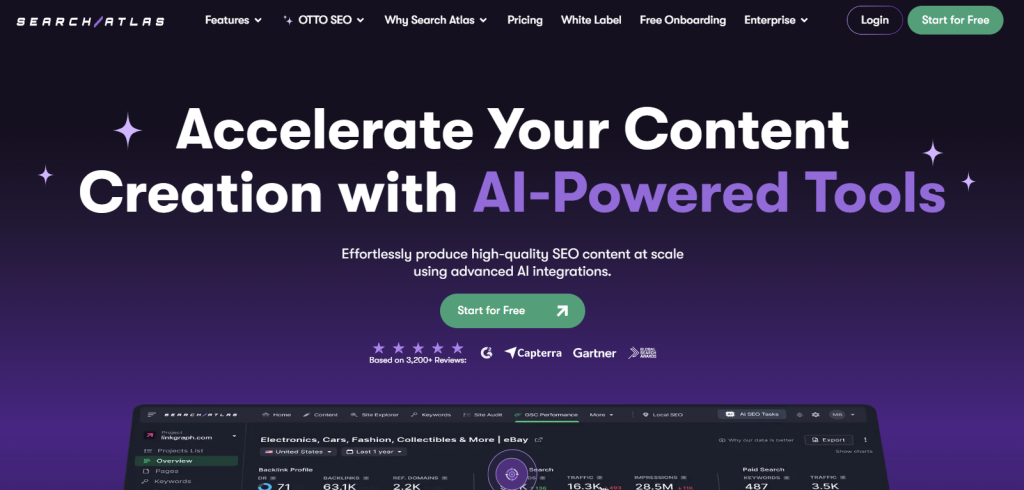
The Content Assistant also incorporates NLP suggestions and SERP analysis to ensure your text is semantically comprehensive. Another convenient feature is 1-click publishing to WordPress or Shopify sites, so you can push your finalized content live without leaving the Search Atlas dashboard.
In summary, the content tools are extremely helpful for marketers who want to scale up content production. They’re comparable to dedicated content optimization platforms like Surfer SEO – letting you optimize for specific keywords and even auto-generate sections of text – but with the benefit of being integrated into a larger SEO suite.
Keyword Research and Rank Tracking
Any SEO platform lives or dies by its keyword tools, and Search Atlas provides a robust set. The Keyword Explorer lets you research keywords from a database of billions of search terms. You can enter a seed keyword and get suggestions along with key metrics: search volume, keyword difficulty (how hard it might be to rank), cost-per-click (for PPC context), and more.
Search Atlas also includes keyword gap analysis – allowing you to compare what keywords your site ranks for versus your competitors – and keyword clustering features to group related terms for content planning.
In practice, this means you can identify keyword opportunities and content ideas much like you would with tools such as Semrush or Ahrefs.
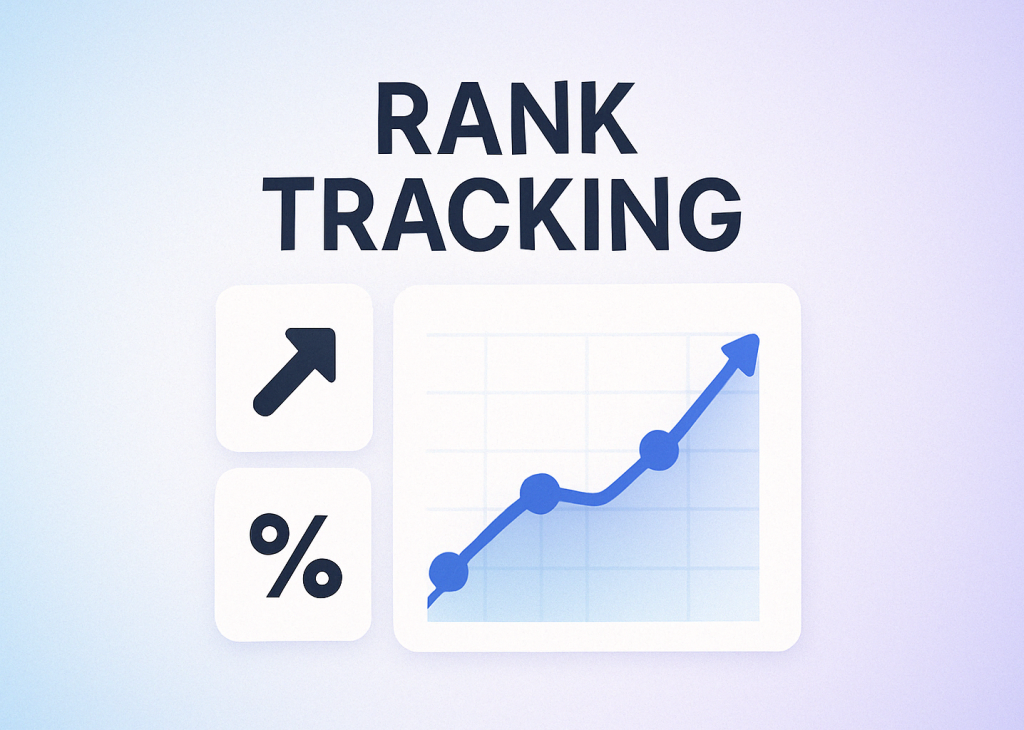
For tracking performance, Search Atlas has a built-in Rank Tracker and deep integration with Google Search Console (GSC). The platform can pull in your GSC data and present it in a more user-friendly way: for example, it can show which keywords each page on your site is ranking for (something that normally requires tedious manual work to connect in GSC).
Users have praised the GSC analytics feature for turning raw search data into clear visuals and insights. You can track hundreds or thousands of keywords, with daily ranking updates included on all plans (no need to pay extra for daily checks). This is great for monitoring SEO progress over time or keeping an eye on how new content is performing.
In short, Search Atlas covers the bases for keyword research and tracking. It might not have the absolute depth of keyword suggestion tools like a dedicated Semrush or Ubersuggest (for example, competitive PPC ads data or international market segmentation beyond Google), but it provides more than enough for most SEO campaigns – and does so in a very integrated manner with your content and site data.
Technical SEO Auditing (Site and On-Page)

Technical health is critical for SEO, and Search Atlas includes tools to audit and monitor your website’s technical SEO. The Site Auditor feature can crawl your site to find issues like broken links, missing meta tags, slow page speeds, or other optimization errors. It’s comparable to tools like Screaming Frog or the site audit functions in Ahrefs/Semrush.
Notably, Search Atlas’s Site Auditor supports fairly large sites (it can crawl up to 1 million pages in the higher-tier plans), and even offers real-time site monitoring for critical issues. Continuous monitoring means you’ll get alerts if something goes wrong (for instance, your site goes down or a noindex tag appears unexpectedly), which is very useful for agencies managing client websites.
There’s also an On-Page SEO audit tool. This analyzes specific pages for content-related factors that might be hurting rankings – for example, it checks if a page is targeting a keyword effectively, or if it’s missing particular elements. Think of it like a checklist or SEO “score” for any given page. While the Content Assistant (discussed above) helps optimize new content as you create it, the On-Page auditor is great for reviewing existing pages on your site and identifying improvements.
It looks at things like keyword usage, header structure, alt text, internal links, etc., and overlaps somewhat with the content tool’s recommendations. (SEOs might use this to evaluate old blog posts or landing pages that need an update.)
Overall, the technical tools in Search Atlas help ensure your site’s foundation is solid. They might not be as flashy as the AI content features, but for an all-in-one platform it’s important that these basics are covered – and they are. In fact, having the audit results in the same dashboard as your content and keywords can make it easier to turn findings into action items (with some help from OTTO, as we’ll discuss soon).
Backlink Analysis and Link Building Tools
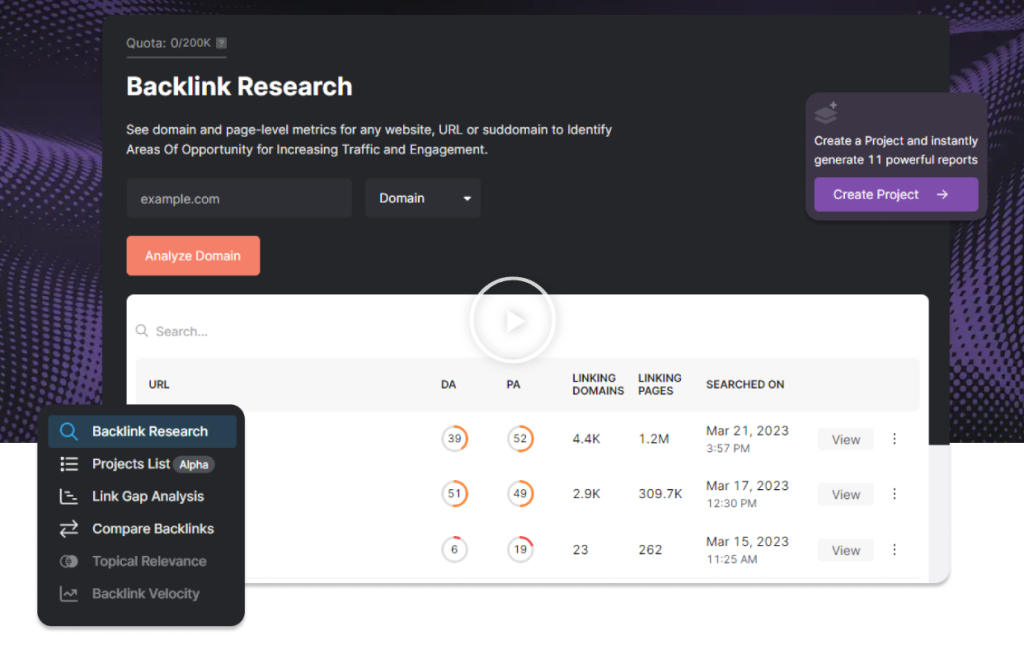
Given that backlinks remain a cornerstone of SEO, Search Atlas provides a Backlink Analyzer and related link-building features to boost your site’s authority. The Backlink Analyzer lets you investigate your own backlink profile and spy on competitors’ links. Users have found this useful for understanding what sites link to you (or your competitors), the anchor text distribution, and the overall quality of those links.
Search Atlas claims to have the largest backlink database of any SEO software, with over 100 trillion links indexed – an ambitious figure that suggests they aggregate data from multiple sources (possibly including Majestic, Moz, and Ahrefs APIs). In practical terms, this means you shouldn’t miss out on important backlinks when analyzing a domain, and you can trust the tool to find a wide range of linking sites for competitive research.
For proactive link building, Search Atlas has some unique additions. It includes a HARO (Help a Reporter Out) outreach tool, which helps you connect with journalists and respond to media opportunities for backlinks. Instead of manually sifting through HARO emails, the platform can streamline the process and even use AI to draft pitches, saving time.
There’s also a Press Release distribution feature (via an integration with SignalGenesys) that uses AI to generate press releases and distribute them to news channels. While press releases aren’t a silver bullet for SEO, they can help garner some initial links and brand mentions, so having this built-in is a nice touch for agencies offering PR services.
Additionally, Search Atlas offers a Link Building management tool and a Citation Builder for local SEO (more on local in a moment). The link building tool can help organize outreach campaigns – for example, keeping track of prospects, email templates, and responses. It’s not as fully developed as specialized outreach platforms, but it’s sufficient for small to mid-scale campaigns.
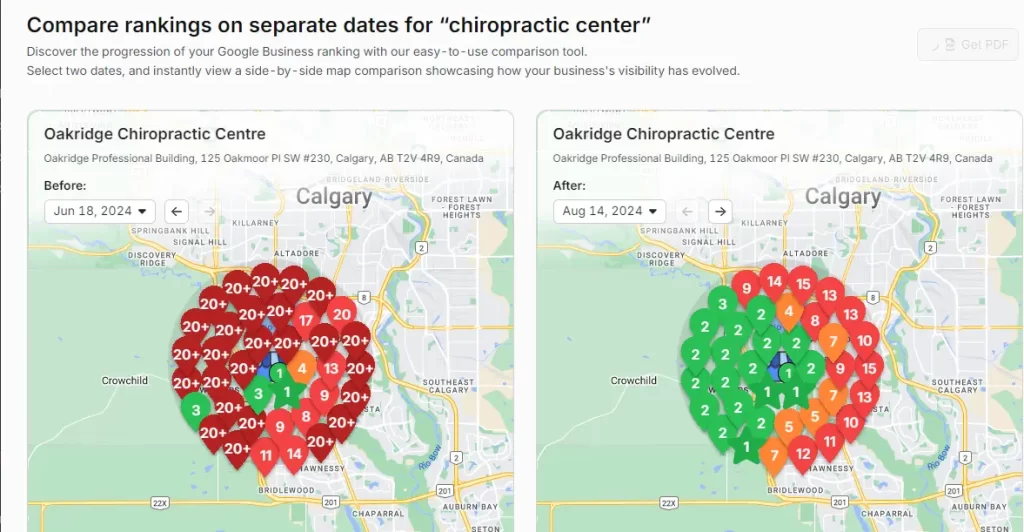
The Site Explorer feature (accessible from the dashboard) ties a lot of this together by providing a one-stop view of any domain’s SEO stats: backlinks, referring domains, organic traffic estimates, top keywords, and even PPC data. Essentially, it’s a competitor research tool equivalent to Ahrefs’ Site Explorer or Semrush’s Domain Overview, and it helps you identify where a competitor is getting their links or which pages are ranking well.
In summary, Search Atlas equips you with both defensive and offensive link strategies: you can audit and learn from backlinks profiles, and also execute link-building tactics like outreach and content promotion. For an all-in-one tool, the inclusion of HARO and press release automation is quite advanced – these are things most other platforms don’t offer out-of-the-box. If link building is a priority for you, Search Atlas can definitely facilitate it, though highly advanced link pros might still use dedicated tools alongside it.
Local SEO and Google Business Profile Features
If you or your clients rely on local search traffic (e.g. via Google Maps or local pack results), Search Atlas has specific Local SEO tools to help. One highlight is the Local SEO Heatmaps/Geo-Grids feature. This tool allows you to visualize how a business ranks in Google’s local results across different parts of a geographic area.
For example, you can see that a client’s pizza shop ranks #1 in searches made from downtown, but drops to #5 a few miles away in another neighborhood. The heatmap gives a grid overlay of the city with ranking positions, which is extremely useful for local SEO optimization and reporting. Traditionally, this kind of localized rank tracking is provided by specialty tools (often at extra cost), but Search Atlas includes it in its suite.

Additionally, Search Atlas offers Google Business Profile (GBP) management capabilities. It can audit your GBP listing and even automate certain tasks like posting updates, answering Q&A, and responding to reviews.
For agencies, the ability to handle multiple GBPs from one dashboard and generate reports on local visibility is a big time-saver. There’s also a Citation Builder which helps create and track local business listings across various directories (ensuring NAP consistency). This again is something that often costs extra via third-party services, but here you get an integrated solution.
Lastly, the platform’s OTTO automation (next section) also extends to local SEO: it can recommend tasks like building new citations or optimizing a GBP based on its audits. So, if local search is important to you, Search Atlas covers the essentials – from on-site local content optimization to off-site citations and map rankings. It’s essentially combining features you’d otherwise get from tools like BrightLocal or Whitespark, rolled into the same interface you use for your other SEO tasks.
SEO Automation with OTTO (Your “AI SEO Assistant”)
Perhaps the most distinctive aspect of Search Atlas is OTTO SEO, the platform’s AI-driven automation engine. The idea behind OTTO is to serve as a virtual SEO assistant or “autopilot” that suggests and even implements optimizations for you. When you activate OTTO on a website (each site you manage can have OTTO running tasks), it will analyze that site’s data and generate a weekly task list of SEO actions.
These tasks might include things like: generating a new piece of content targeting a keyword gap, fixing a set of technical issues, adding internal links between certain pages, building a specified number of backlinks (via content or outreach), etc. Essentially, OTTO tries to automate the strategy and execution of SEO in one click.
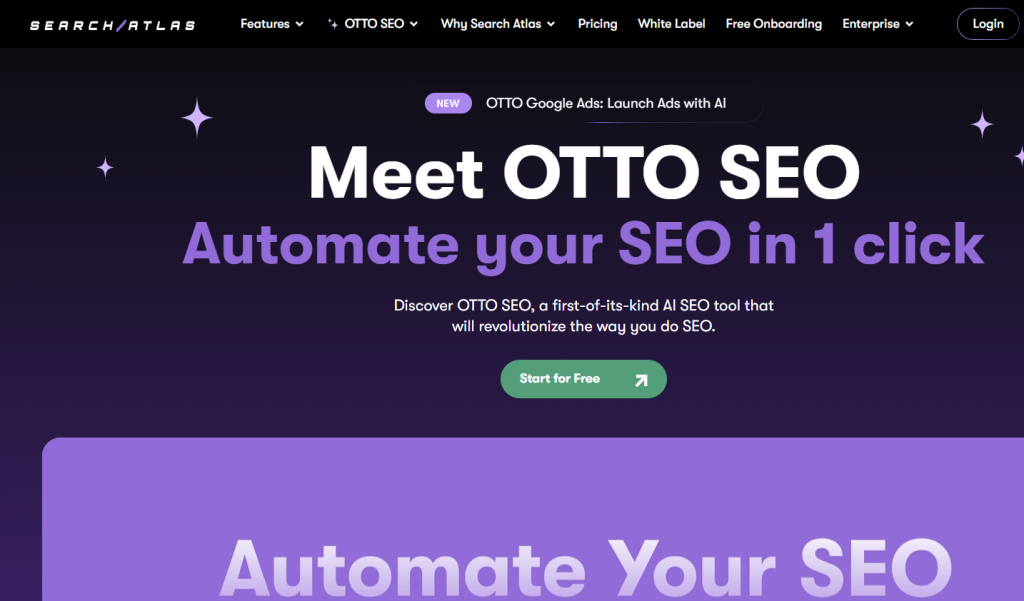
For example, OTTO can automatically create content briefs or even draft articles for keywords it identifies as opportunities. It can also schedule content to publish, fetch relevant stock or AI-generated images for that content, and internally link it to other pages – acting almost like an in-house SEO/content team member. On the technical side, OTTO might auto-generate a schema markup for your pages or optimize some meta tags.
In link building, OTTO could schedule a press release or find a few relevant directories to submit to. Not every task is fully hands-off (some will require you to approve or tweak), but the promise is that “90% of SEO tasks” can be handled by AI to dramatically reduce the manual workload.
In practice, how effective is this automation? For beginners or very time-strapped teams, OTTO can be a game changer – it’s like having an SEO consultant give you a to-do list each week, and even doing a chunk of it for you. It helps close the knowledge gap for those who aren’t sure what to do next in their SEO.
However, it’s not a magic wand; you still want to review the AI’s suggestions to ensure they make sense for your context. That said, users report that OTTO’s recommendations often lead to noticeable gains in rankings and traffic over a matter of weeks, especially when consistently followed. It’s an evolving feature (the company is continuously updating OTTO’s algorithms), but it represents a forward-thinking approach to SEO software – moving from just analysis to actual execution.
To sum up, OTTO is like having an AI co-pilot for your SEO campaigns. If you’re the kind of person who gets overwhelmed by the myriad of SEO tasks, OTTO can prioritize and handle many of them, allowing you to focus on strategy and review.
It’s particularly attractive to agencies managing multiple sites, as it can scale efforts across clients. This is something competitors currently do not offer (at least not in as integrated a way), giving Search Atlas a unique selling point for those interested in SEO automation.
Pros and Cons
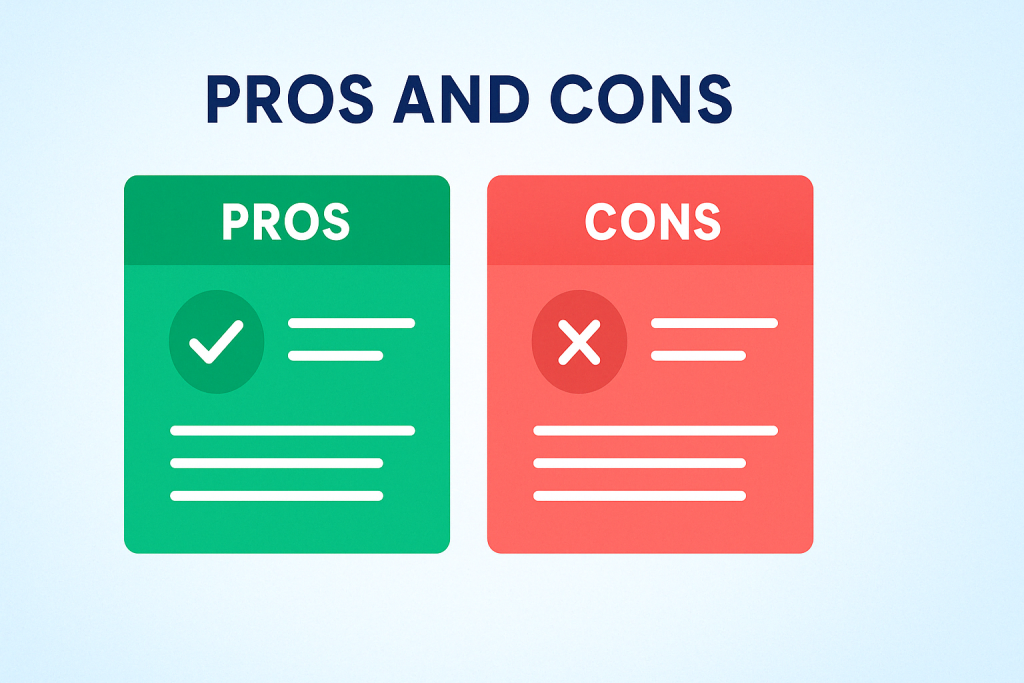
Like any platform, Search Atlas has its strengths and weaknesses. Let’s break down the key advantages and drawbacks that emerged from our research and hands-on use:
Pros:
- All-in-One Convenience: Search Atlas combines many SEO functions (keywords, content, links, technical SEO, local SEO) in one place. You don’t need separate subscriptions to a keyword tool, a content optimizer, a rank tracker, etc., which can save you money and hassle. Everything is integrated, and the tools work together (e.g. you can go from keyword research to drafting a content piece to auditing it, all in one workflow).
- AI Content Generation and Optimization: The built-in Content Assistant (Content Genius) is very beginner-friendly and can significantly speed up writing SEO content. It provides clear guidance on improving content for SEO, and the ability to generate drafts with AI is a big plus for those who need extra help creating articles. Essentially, it does what specialized content tools (like Surfer or Frase) do, but without leaving the platform.
- Powerful Competitor & Backlink Analysis: Users praise Search Atlas’s Backlink Analyzer and competitor research capabilities. You can easily “peek” at competitor strategies – seeing their backlinks, top keywords, and traffic – to inform your own SEO plan. The backlink index is massive (100 trillion+ links), which in theory means you get very comprehensive link data. For agencies, the Site Explorer and reporting tools make it easy to show clients how they stack up against competitors.
- Automation with OTTO Saves Time: The OTTO AI assistant is a unique advantage. It can handle routine SEO tasks and provide an actionable roadmap each week. This is great for marketers with limited time or teams that want to scale efforts. Essentially, OTTO helps ensure “no SEO stone is left unturned” by constantly analyzing and optimizing your sites. Early adopters have reported faster results due to OTTO’s recommendations (e.g. climbing in rankings by following the task list) without significantly increasing their workload.
- Agency-Friendly Features: Search Atlas was built with agencies in mind. All plans support multiple users/seats (even the starter plan includes at least 2 users, which is rare – many competitors charge extra per user). You can also create unlimited client projects and even white-label the platform with your agency’s branding for client logins and reports.
This makes it very attractive for SEO agencies or consultants managing several clients, as the cost per client ends up much lower than using separate tool accounts. Reporting is also customizable, pulling in data from Google Analytics/Search Console alongside Search Atlas’s own metrics for a holistic report.

- Comprehensive Local SEO Suite: Unlike many SEO tools, Search Atlas doesn’t ignore local search. The inclusion of local rank heatmaps, GBP management, and citation building means local businesses or agencies have those tools at their disposal out-of-the-box. You won’t need a separate local SEO subscription, which is a cost saver.
- Good Value for Money: While not “cheap” software, Search Atlas is competitively priced given how much it includes (see Pricing below). It has been recognized for providing strong value – for instance, it earned a “Best Value for Money” badge on Capterra based on user reviews. When comparing cost vs. the sheer number of features (including some that would normally require 2-3 different tools), many users feel they get their money’s worth. There’s also a free trial and flexible plans for different sizes, making it accessible to test and scale.
Cons:
- Newer Platform (Potential Bugs): Search Atlas is a relatively newer entrant in the SEO tool space, and a few users have reported occasional bugs or performance issues. For example, some have experienced slow loading times in certain modules, or minor glitches in the interface. The development team does roll out updates frequently, but if you’re used to the polish of a tool like Ahrefs, you might find a few rough edges here and there. Generally, these are not deal-breakers, but they can be a bit frustrating (e.g. a report taking longer to generate than expected).
- Steep Learning Curve for Beginners: While the interface is friendly, the sheer breadth of features means new users might feel overwhelmed initially. There are a lot of tools in the suite, and figuring out how to use everything effectively can take time.
One reviewer noted that the user interface could be more intuitive and that it required some familiarization to navigate all the options. To be fair, Search Atlas provides a knowledge base and onboarding support, but if you’re completely new to SEO, the platform might feel complex until you learn the ropes. (The flip side is that it’s powerful once you do learn it.)
- Primarily Google-Focused: Search Atlas’s data and recommendations are largely centered on Google search. The keyword data, rank tracking, and technical suggestions all assume Google’s algorithms and metrics. It currently does not integrate much data from other search engines (like Bing, Yahoo, etc.).
For most users this isn’t a big issue – Google dominates search traffic – but it’s worth noting if your SEO strategy involves other engines or if you wanted insights on, say, YouTube or Amazon search (those would require separate tools).
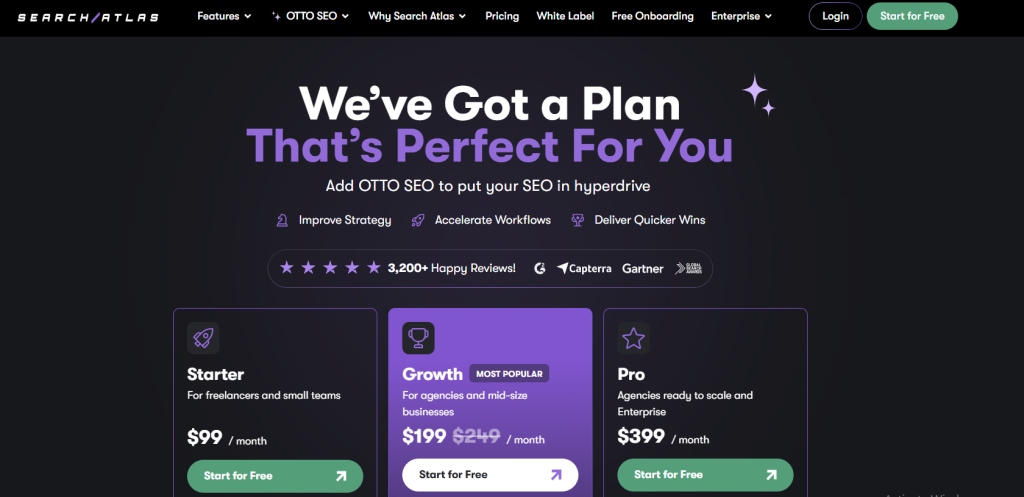
- Mobile Experience Could Improve: At the time of writing, Search Atlas’s platform is best used on desktop. There isn’t a dedicated mobile app, and the web interface on a mobile browser isn’t very smooth. Some users have pointed out a lack of mobile-friendliness in the design. This is only a concern if you plan to check your SEO stats on the go. For now, plan to do your major work on a laptop/desktop for an optimal experience.
- Customer Support Response Time: A few customers mentioned that while support is available, it can sometimes be slow to respond or resolve issues. This isn’t a universal complaint, but if you run into a complex problem, you might not get instant support (especially compared to larger companies that have 24/7 live chat). Search Atlas does offer free onboarding sessions for new users, which is great, but their day-to-day support might have room to speed up as they grow.
To put it in perspective, most of the cons are typical for a growing software platform – none of them severely hinder the core functionality. The strongest criticism out there (like a harsh Reddit thread calling it “buggy and unworkable”) seems to be outliers, given the overall user ratings are very high. Still, if maximum stability and a long track record are your top priorities, you might lean toward more established tools for now. Otherwise, Search Atlas’s innovative features tend to outweigh these niggles for the majority of users.
Pricing
Search Atlas’s pricing is structured to accommodate everyone from solo freelancers to large agencies. The plans mainly differ by how many websites you need to manage (and thus how many OTTO automated sites you activate) and the usage quotas for certain features. All core features are available on every plan – you don’t lose major functionality on the lower tiers, which is nice. Below is a simplified breakdown of the standard plans and costs:
| Plan | Monthly Price (USD) | Included Websites | Ideal For |
|---|---|---|---|
| Starter | $99 per month | 1 site (OTTO on 1 site) | Freelancers & small teams (entry-level) |
| Growth | $249 per month | 2 sites (OTTO on 2 sites) | Growing businesses & agencies (most popular) |
| Pro | $399 per month | 4 sites (OTTO on 4 sites) | Large agencies & enterprises scaling up |
| Enterprise | Custom pricing | 10+ sites (up to 50+) | Enterprise solutions (high-volume, custom needs) |
Included in all plans: You get multiple user accounts (seats) on each plan by default (even Starter includes 2 users), unlimited projects (campaigns) for organizing keywords/content per site, the full suite of SEO tools (content, keywords, links, local, etc.), and access to OTTO AI tasks. Higher plans increase the quotas – for example, the number of content pieces you can AI-generate per month, the number of keyword queries or site audit pages per month, and how many Google Business Profiles you can manage.
For instance, the Growth plan bumps up to 15 Search Console site integrations and 10 automated GBPs vs. 5 and 3 in Starter, and Pro increases those further (unlimited GSC projects, 25 GBPs). Pro and Enterprise also come with the highest AI generation quotas and the cheapest “cost per AI credit” if you need to purchase extra content or link-building credits.
Search Atlas often provides discounts if you commit annually – the $199 (annual) vs $249 (monthly) pricing for the Growth plan in the table above is one example. There are also volume discounts for agencies with many sites: if you manage more than 4 sites, you can negotiate Enterprise pricing (they advertise as low as $39 per site for 50+ sites on an Enterprise deal). This scaling model makes the platform increasingly cost-effective the more sites you add.
All new users can start with a 7-day free trial (no credit card required) to test out the platform. Additionally, the company sometimes offers a “Community Edition” with limited free features or promotions for startups – so it’s worth checking their website for the latest offers.
In terms of value, the Starter $99 plan is comparable in price to basic plans of Ahrefs or Semrush, but remember that Search Atlas’s plan includes content AI tools and multi-user support which others do not at that tier. The Growth $249 plan is positioned as the best value for a small agency (covering 2 sites; you could also use one of those “sites” as a sandbox or your own site). Pro at $399 is aimed at agencies that might otherwise spend much more on multiple tool subscriptions. Finally, Enterprise is custom but the per-site cost drops dramatically at scale.
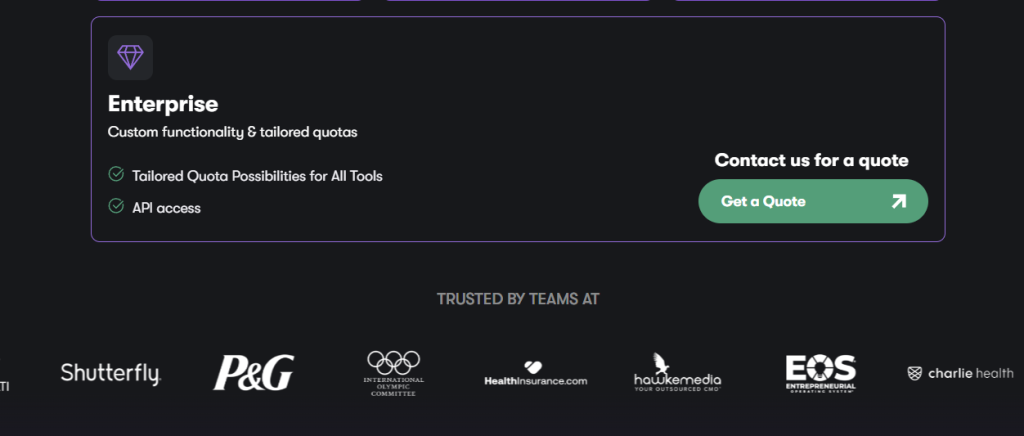
Bottom line: If you’re a single-site owner, $99/month is a sizeable investment but you’re getting a full toolkit + AI assistance. For agencies managing clients, Search Atlas can actually save money by consolidating tool costs – e.g. instead of paying for an SEO tool and a content AI tool and a local SEO tool, one Pro plan could cover all your clients’ needs in one. Always consider the free trial to gauge if the ROI makes sense for you.
(Note: Pricing is current as of April 2025 and may be subject to change. Always check the official Search Atlas pricing page for the latest details and any promotions.)
Search Atlas vs Competitors
How does Search Atlas stack up against other popular SEO platforms? Below we compare it with three well-known tools: Ahrefs, Semrush, and Surfer SEO. Each of these competitors excels in certain areas, but Search Atlas brings its own twist with the all-in-one approach and AI automations.
Search Atlas vs Ahrefs
Ahrefs is often considered the gold standard for backlink analysis and has robust keyword research tools. When comparing Ahrefs and Search Atlas, there are a few key points:
- Features Overlap: Both offer site explorers for competitor research, backlink indexes, keyword tools, and rank tracking. Ahrefs has a long-standing reputation for a high-quality backlink index and user-friendly interface for SEOs. Search Atlas, however, claims an even larger link database (100 trillion vs Ahrefs’ ~30 trillion discovered backlinks).
In practice, Search Atlas leverages multiple data sources and provides very similar backlink insights. It also covers on-page/content suggestions, which Ahrefs doesn’t really do (Ahrefs has content explorer and some on-page checks, but not an AI writing assistant).
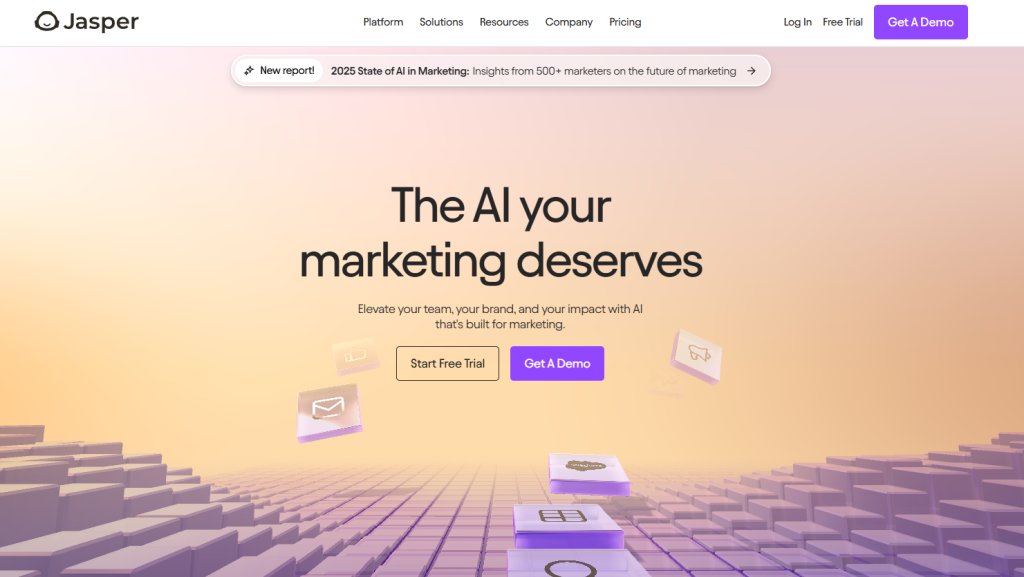
- AI and Content: This is where Search Atlas pulls ahead. Ahrefs does not have built-in AI content generation or a content optimizer tool. Search Atlas includes a full content workflow with AI, so users who want guidance in content creation may prefer it. Essentially, Search Atlas merges what Ahrefs offers with what a tool like Jasper or Surfer would offer for content, in one platform.
- Ease of Use: Ahrefs is renowned for a clean UI and very actionable reports (like “Top Pages,” “Content Gap,” etc.). Search Atlas’s interface is improving, but as noted, it can feel more complex because it has more integrated features. Beginners might find Ahrefs simpler initially, but Search Atlas tries to mitigate complexity with OTTO’s guidance and an all-in-one dashboard approach.
- Pricing & Users: Ahrefs can be expensive, especially for agencies – its plans limit you to one user seat by default, and each extra user costs more. For example, even Ahrefs’ Enterprise plan only includes 1 seat (you pay ~$30/month for each additional user).
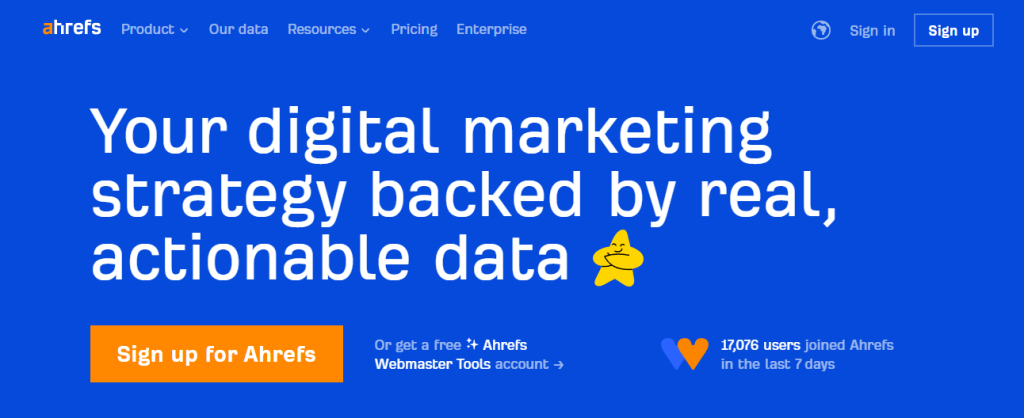
Search Atlas, by contrast, includes multiple seats in every plan (allowing team collaboration at no extra cost). It also allows unlimited projects for client work, whereas Ahrefs caps things like the number of tracked campaigns or reports per plan. Cost-wise, Search Atlas’s starting price is similar to Ahrefs ($99 range), but if you need to accommodate a team or many projects, Search Atlas quickly becomes more cost-effective.
- Unique Perks: Search Atlas offers white-label capabilities (custom branding on reports and even on the dashboard for clients) – Ahrefs does not have this. Also, Search Atlas’s OTTO automation is something Ahrefs doesn’t attempt; Ahrefs provides data, but you have to decide and implement the SEO actions yourself. Agencies that want a more guided or done-for-you element might lean toward Search Atlas for this reason.
In summary, Ahrefs is a powerful choice for pure SEO data analysis and has a longer track record; however, Search Atlas provides a broader toolset (especially for content and automation) and more flexibility for teams. If your focus is hardcore backlink research with a tried-and-true interface, Ahrefs is great.
But if you want an all-encompassing solution that also helps execute SEO tasks and create content, Search Atlas is very compelling. Many agencies choose Search Atlas over Ahrefs when they consider the cost of equipping a team and the additional features on offer.
Search Atlas vs Semrush
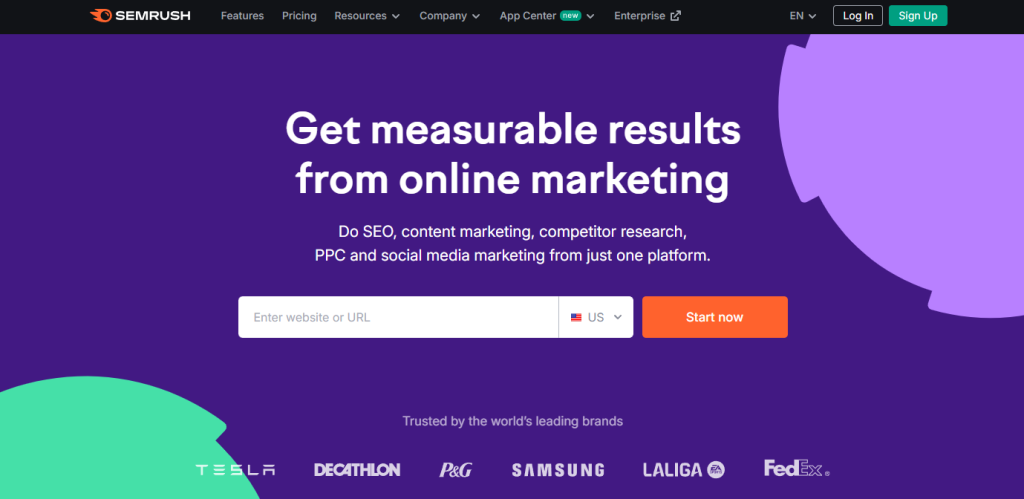
Semrush is another top competitor, known for being a comprehensive SEO and SEM suite (including PPC analysis, social media tools, etc.). Comparing Semrush with Search Atlas:
- All-in-One Nature: Both tools are all-in-one platforms to a large extent. Semrush offers keyword research, rank tracking, site auditing, backlink analysis, content suggestions (via an SEO Writing Assistant), and even extras like social posting and PPC keyword research.
Search Atlas similarly covers most of those SEO aspects (and even integrates a bit of Google Ads management via OTTO, though it’s more SEO-focused than PPC). One difference is Search Atlas’s inclusion of certain features at no extra cost that Semrush charges extra for – e.g., local SEO heatmaps and citation building are included in Search Atlas but would require separate add-ons or services with Semrush.
- Data and Quotas: Semrush has a huge keyword database and is very reliable for competitor traffic analysis. Search Atlas’s own databases are large and global (5 billion keywords, 500M domains indexed), so in many cases you’ll get comparable results.
However, Semrush might have an edge in some of the PPC-oriented data (if you need to see Google Ads history, etc., which Search Atlas doesn’t focus on). One notable point is that Search Atlas tends to offer higher quotas for things like the number of keywords you can track or the number of site audit pages you can crawl, especially on higher plans. Semrush’s mid-tier plans sometimes limit these unless you pay more.

- Content and AI: Semrush has an SEO Content Template and SEO Writing Assistant which give recommendations for content (some NLP analysis), but it doesn’t have an AI writer built-in. Search Atlas’ content tools are more advanced in that they can actually generate content with AI and are deeply integrated with the platform.
So if content creation is a key need, Search Atlas provides more out of the box. Semrush recently added some AI features (like an “ask AI for keywords” tool), but it’s not as extensive as Search Atlas’s content generation capabilities.
- Unique Features: Search Atlas offers a couple of unique tools that Semrush lacks: the HARO digital PR tool (Semrush has nothing for HARO outreach), and the OTTO automation engine (Semrush gives you recommendations via its Site Audit or Idea tabs, but it doesn’t actually carry out tasks or use AI to that extent).
On the other hand, Semrush has some unique features outside of pure SEO – like social media schedulers, a robust competitor PPC research tool, and a bigger ecosystem of marketing tools. Search Atlas is narrower in focus (SEO and content specifically).
- Team Collaboration: Similar to Ahrefs, Semrush’s pricing for agencies can ramp up when you add users. By default, Semrush Pro ( $120/mo) is single-user; Business ($449/mo) allows white-label and more users, but each additional seat costs extra. Search Atlas’s plans include multiple users by default and white-labeling even on lower tiers. So, agencies often calculate that they get more for less with Search Atlas when needing multi-user access and client-facing features.
In a nutshell, Semrush is a very robust and mature product with a slightly broader online marketing scope (SEO + PPC + social). Search Atlas is laser-focused on SEO and content, and pushes innovation in AI-driven workflow. If you already use and love Semrush, you’ll find a lot of overlap in Search Atlas, but you might be impressed by the automation and certain included features.
On price and fresh approach, Search Atlas can be a strong alternative – particularly for content marketing-heavy teams or agencies wanting to save on add-ons. If you need the absolute gamut of digital marketing tools or prefer a long-established interface, Semrush may still win out. But for many, Search Atlas compares very favorably, delivering “better tools, bigger data, and smarter insights” specifically for SEO needs.
Search Atlas vs Surfer SEO
Surfer SEO is a bit different from the above two – it’s primarily a content optimization tool (with some keyword research capabilities). Many bloggers and content teams use Surfer to fine-tune their articles for SEO. Let’s see how Search Atlas compares to Surfer:
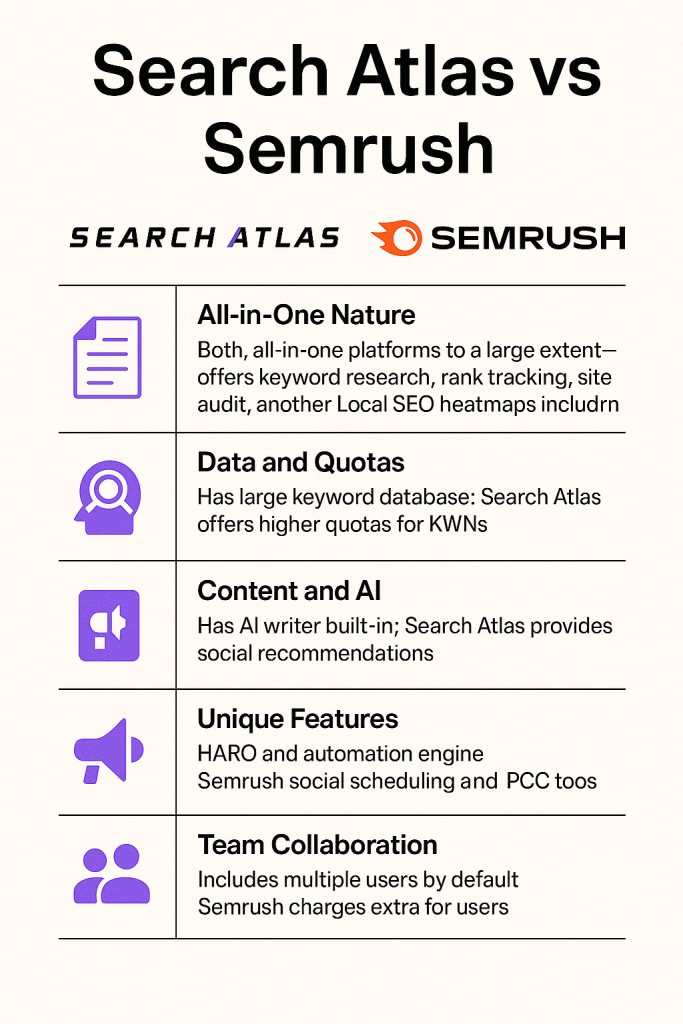
Use Cases – Who Will Benefit Most from Search Atlas?
Search Atlas is a versatile platform, but based on its features and design, here are the types of users that stand to gain the most from it:
- SEO Agencies and Consultants: This is arguably the primary target audience. Agencies managing multiple clients’ SEO will love the multi-site management, multi-user support, and white-label capabilities. You can handle all your clients in one dashboard, assign team members their own logins, and even let clients view reports in a branded portal.
The high quotas and unlimited projects mean an agency can scale up without hitting plan limits easily. Plus, OTTO can help agencies deliver results faster or handle more clients with the same team size by automating routine tasks. If you’re an agency that’s been piecing together tools (one for rank tracking, one for content, one for links, etc.), Search Atlas could streamline your operations dramatically.

- In-House Marketing Teams: Companies with dedicated marketing or SEO teams can also benefit. An in-house SEO specialist or content marketer can use Search Atlas to collaborate (e.g., content writers using the content suggestions, web developers checking the tech audit fixes, etc.). The platform’s all-in-one nature means the team has a “single source of truth” for SEO data.
Medium-sized businesses that want to grow their organic traffic without hiring a big SEO agency might find Search Atlas equips them with near-agency-level capabilities, guided by the tool’s recommendations.
- Content Marketers and Bloggers: If your focus is on content (blog posts, affiliate marketing sites, etc.), Search Atlas provides an excellent environment to both research and optimize content. You can go from keyword research to outline to final draft in one place.
The AI writing assistant can help generate first drafts or overcome writer’s block. For someone running niche sites or a content-driven SEO strategy, this is a huge time-saver. Additionally, the platform’s rank tracking and content planner help you keep an eye on how your content is performing and organize your publishing calendar.
- E-commerce Businesses and Shopify Store Owners: Search Atlas has a Shopify app integration and touts itself as great for e-commerce SEO. Online stores can benefit from the product page optimization (ensuring descriptions are SEO-friendly), site audits for technical e-commerce issues, and content generation for things like category descriptions or blog content to drive traffic.
The local SEO tools also help if you have physical retail locations in addition to an online store. And if you run Google Ads, the new OTTO for Google Ads can assist in that realm too – although not the focus of this review, it’s worth noting Search Atlas is branching into adjacent areas.
- Small Business Owners and DIY SEO Beginners: Surprisingly, even though Search Atlas is powerful, it’s also approachable for beginners who are motivated to learn. If you’re a solo business owner who can’t afford a full-time SEO, using Search Atlas is like having an SEO consultant and content assistant at your side.
The platform will tell you what to do through OTTO’s suggestions – it might say “write an article on X topic” or “fix these 5 issues” – and often provide the tools to do it immediately (like generating the article outline or auto-fixing some issues). For a beginner, this guidance is invaluable.
Keep in mind there will be a learning curve, but there are training materials and the free onboarding session that can get you up to speed. If you’re willing to invest the $99/month in lieu of hiring someone, you could feasibly improve your website’s SEO by following Search Atlas’s gameplan.
On the other hand, who might not need Search Atlas? If you only require a very narrow tool – for example, you just want to track 10 keywords and occasionally check backlinks – a simpler, cheaper tool or even free Google tools might suffice.

Also, if you’re exclusively focused on PPC or social media marketing, Search Atlas would be overkill since it’s centered on organic SEO. Very large enterprises with complex needs might still use enterprise-level solutions (or even multiple specialized tools) in addition to Search Atlas, although the platform is trying to position itself as capable for enterprise too (with custom solutions).
One more note: because Search Atlas is evolving quickly, it tends to add features that users request. This makes it quite adaptable to different use cases. For example, some users wanted better project management for content – the Content Planner feature addresses that by allowing editorial calendar functions.
Others wanted easier reporting – the Report Builder came in with exportable, client-friendly reports and even AI-written summary highlights. So, the platform is growing with its user base. If your use case isn’t perfectly served today, there’s a good chance it will be in the near future given the development pace.
Final Verdict: Is Search Atlas Worth It?
Yes—especially if you're looking for an all-in-one SEO solution. Search Atlas combines powerful tools like AI content creation and OTTO SEO automation into a single, streamlined platform, making your workflow more efficient and less scattered. With stellar user ratings (4.9/5 on Capterra), many have reported faster results, better rankings, and huge time savings.
Keep in mind, it's not a push-button solution—you still need solid content and smart strategy. But Search Atlas makes that work easier by highlighting what matters and often handling the heavy lifting for you.
Recommendation:
- Agencies/Consultants: A top-tier solution for managing multiple clients with ease, thanks to built-in reporting and collaboration tools.
- Businesses/Marketers: A smart choice for scaling organic presence without juggling multiple tools.
- Beginners (with a budget): A great introduction to pro-level SEO with built-in learning from smart suggestions.
While advanced SEOs might still reach for niche tools, Search Atlas provides a powerful, unified alternative. In 2025, it's one of the most future-forward SEO platforms on the market—and with a free trial available, you can test it yourself to see how well it fits.

